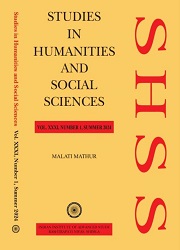From The God’s Kitchen
The Mahaprasad in Shri Jagannath Temple, Puri, India
Keywords:
Mahaprasad, Lord Jagannath, Spiritual food, Caste hierarchy, Hindu kinship, Liminality and Communitas, Anti- StructureAbstract
All living bodies subsist on food grains. Food is, therefore, irrefutably linked with the physical, social, moral and spiritual dimensions of human existence. If we see the Anthropological discourses are replete with numerous examples of eating either as a social and cultural experience or as a collection of associated beliefs affecting the physical body. Hence, many anthropologists have attached paramount importance to food as a symbol of identity, which has further been endorsed by scholars like Levi-Strauss, Jack Goody, Sidney Mintz, Robin Fox, Ravindra Khare and many others from their vantage point. However, there are several contrary views suggesting that food does not necessarily symbolize identities, forcefully addressed by Jeremy MacClancy, Jon Holtzman, James Staples, Arjun Appadurai, among others. With this polemic at the background, using auto-ethnographical method, an attempt has been made in this paper to empirically demonstrate how spiritual food can serve both the ends meaningfully at the same time. On one hand, it embodies the typical food culture of a region, while on the other it temporarily breaks the rigid rules of commensality when eating. Although spiritual food can be prepared and shared in households or communities, I have chosen a famous 11th Century Hindu temple in India, where the tradition of eating together the leftovers of the offerings to the Deities (Prasadam) has created a special space in the minds of the devout Hindus, defying the rigid rules of commensality, taboos and caste barriers, replicating what Turner would have called an “anti-structure” (1969). So the paper elucidates here the case of the spiritual offerings, popularly known as Mahaprasad of a Hindu God, Lord Jagannath of Puri, in India. Further it demonstrate how this structural disorientation while eating this offering (Prasad) fits into the paradigm of ‘communitas’ or anti-structure much like Turner conceptualizes it as a ‘liminal’ and existential opposition to rigid and hierarchical structures of a society.



